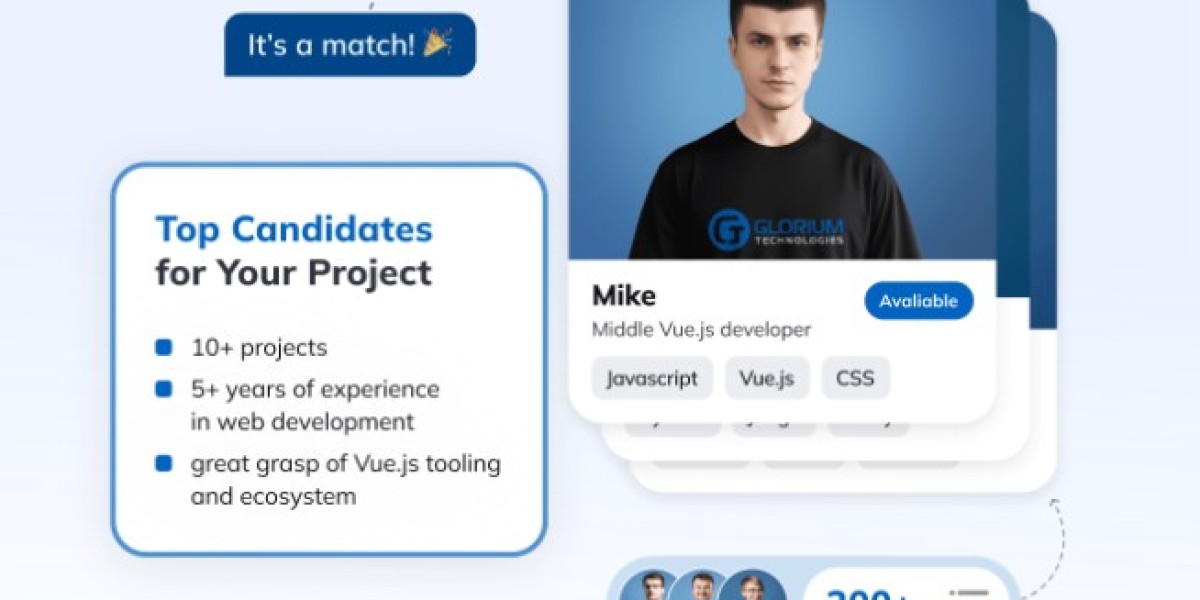Vue.js has become a popular JavaScript framework for building responsive and interactive web applications, thanks to its flexibility, simplicity, and ease of integration. When hiring a Vue.js developer, asking the right questions is essential to gauge the candidate’s expertise, problem-solving skills, and cultural fit. Below, we’ll discuss ten critical questions to ask during an interview for a Vue.js developer position. This guide will help you identify the right developer for your team and project needs.
1. What Attracted You to Vue.js, and How Do You Typically Use It?
This question gives you insight into the developer’s experience and motivations for working with Vue.js. You’ll gain a sense of whether they have experience with other JavaScript frameworks, such as React or Angular, and why they prefer Vue.js. This also reveals the candidate’s familiarity with the framework's ecosystem and its role in their previous projects.
The ideal hire Vue.js developer candidate should demonstrate enthusiasm for the framework and be able to articulate specific benefits of using Vue.js, such as its ease of integration, reactive data binding, and efficient DOM updates.
2. Can You Explain Vue’s Reactivity System?
Vue.js is known for its reactivity system, which automatically updates the DOM when data changes. Understanding this system is crucial, as it’s the backbone of what makes Vue.js so efficient. Asking this question helps you evaluate the developer’s technical knowledge of Vue's reactivity principles, particularly its data-binding and computed properties.
A strong candidate should be able to explain concepts like the data object, watchers, computed properties, and how Vue.js manages reactivity with dependency tracking. They should also know how Vue handles updates in response to data changes.
3. How Do You Handle State Management in Vue.js Applications?
For complex applications, state management becomes essential, and Vue has its own state management pattern and library called Vuex. This question aims to understand the developer’s approach to handling shared data in an application.
The ideal hire Vue.js developer will have experience using Vuex or similar state management tools like Pinia. They should be able to explain the concepts of state, mutations, actions, and getters and how they’re used to keep track of shared data across components.
4. Can You Describe How Vue Components Work and Their Lifecycle?
Vue.js is heavily component-based, and understanding the component lifecycle is critical for effective application development. By asking this question, you assess whether the candidate is knowledgeable about Vue component structures, including parent and child components, props, events, and slot distribution.
A skilled Vue.js developer should discuss how components are created, mounted, updated, and destroyed. They should also explain how to leverage lifecycle hooks, such as created, mounted, and destroyed, to perform actions at various stages of the component lifecycle.
5. How Do You Optimize Vue.js Applications for Performance?
Performance optimization is a crucial aspect of front-end development. A Vue.js developer should be familiar with techniques for improving the speed and efficiency of a Vue.js application, especially for large-scale projects.
An ideal candidate should mention strategies like lazy loading, dynamic imports, code-splitting, and using Vue’s built-in optimizations such as v-if versus v-show. They might also discuss server-side rendering (SSR) with Nuxt.js, caching, and minimizing state dependencies.
6. What’s Your Experience with Testing Vue.js Applications?
Testing is essential for any development project, and Vue.js applications are no exception. A strong candidate should have experience with testing tools and frameworks such as Jest, Mocha, or Vue Test Utils.
Ask the developer to explain their approach to unit testing, end-to-end (E2E) testing, and integration testing within Vue.js applications. The candidate should demonstrate familiarity with setting up tests for components, using mocks and spies, and employing Continuous Integration (CI) to automate testing.
7. How Do You Manage Routing in a Vue.js Application?
Vue.js offers its official router called Vue Router, which is essential for creating single-page applications (SPAs). This question tests the candidate’s understanding of Vue Router and their ability to manage application routes efficiently.
A good hire Vue.js developer will be able to explain how to configure Vue Router, set up dynamic routing, nested routes, and navigation guards. They should also know how to handle authentication-based redirects and the pros and cons of different route navigation approaches.
8. How Do You Handle Forms and Data Validation in Vue.js?
Forms are a critical part of web applications, especially those that require data input from users. This question assesses the developer’s knowledge of Vue’s built-in form handling capabilities and how they implement data validation.
The ideal candidate should be familiar with using v-model for two-way data binding in forms, handling validation errors, and integrating with third-party libraries such as Vuelidate or VeeValidate for more complex validation requirements. They should also understand how to sanitize and secure form data to prevent vulnerabilities.
9. Can You Describe a Challenging Problem You’ve Solved Using Vue.js?
This open-ended question gives candidates a chance to showcase their problem-solving skills and demonstrate real-world experience with Vue.js. It can reveal how they approach challenges, whether through researching solutions, experimenting with different methods, or consulting documentation and community resources.
The best hire Vue.js developer candidates will provide examples of complex scenarios they encountered, such as optimizing slow components, managing deeply nested state, or handling asynchronous data. Their response will show their creativity and resilience in solving issues and applying Vue.js to real-world applications.
10. How Do You Stay Updated with the Latest Vue.js and JavaScript Trends?
The web development landscape changes rapidly, and Vue.js is no exception. By asking this question, you gauge the candidate’s commitment to continuous learning and staying current with new features, tools, and best practices.
An ideal candidate will have a proactive approach to professional development, regularly following Vue.js documentation, blogs, community forums, or attending conferences like VueConf. This question helps you assess whether the developer has a growth mindset, which is crucial for adapting to new technologies and evolving project needs.
Conclusion
Hiring the right Vue.js developer involves more than just technical skills; it’s about finding someone who understands Vue.js fundamentals, can work collaboratively, and has the problem-solving skills to tackle complex challenges. By asking these ten interview questions, you’ll be better positioned to identify a qualified hire Vue.js developer who can meet your team’s needs and contribute to building high-quality applications. Remember that a strong Vue.js developer should have both the technical expertise and a growth-oriented approach to their craft, ensuring they bring both immediate value and long-term potential to your organization.










